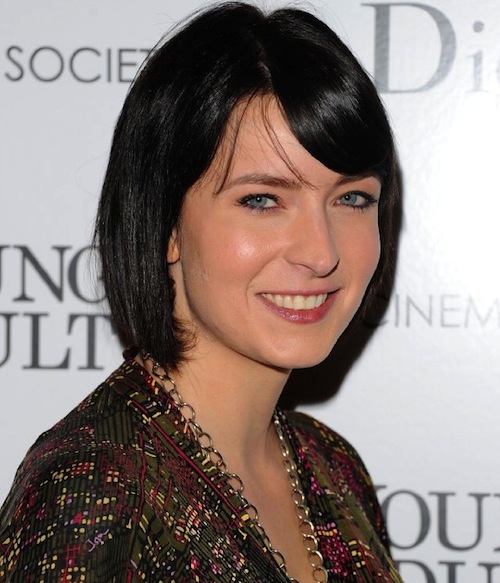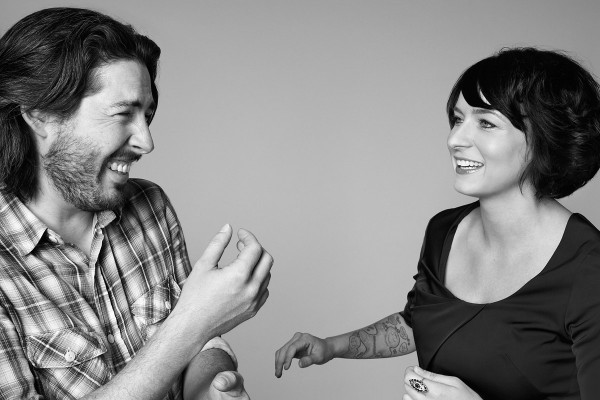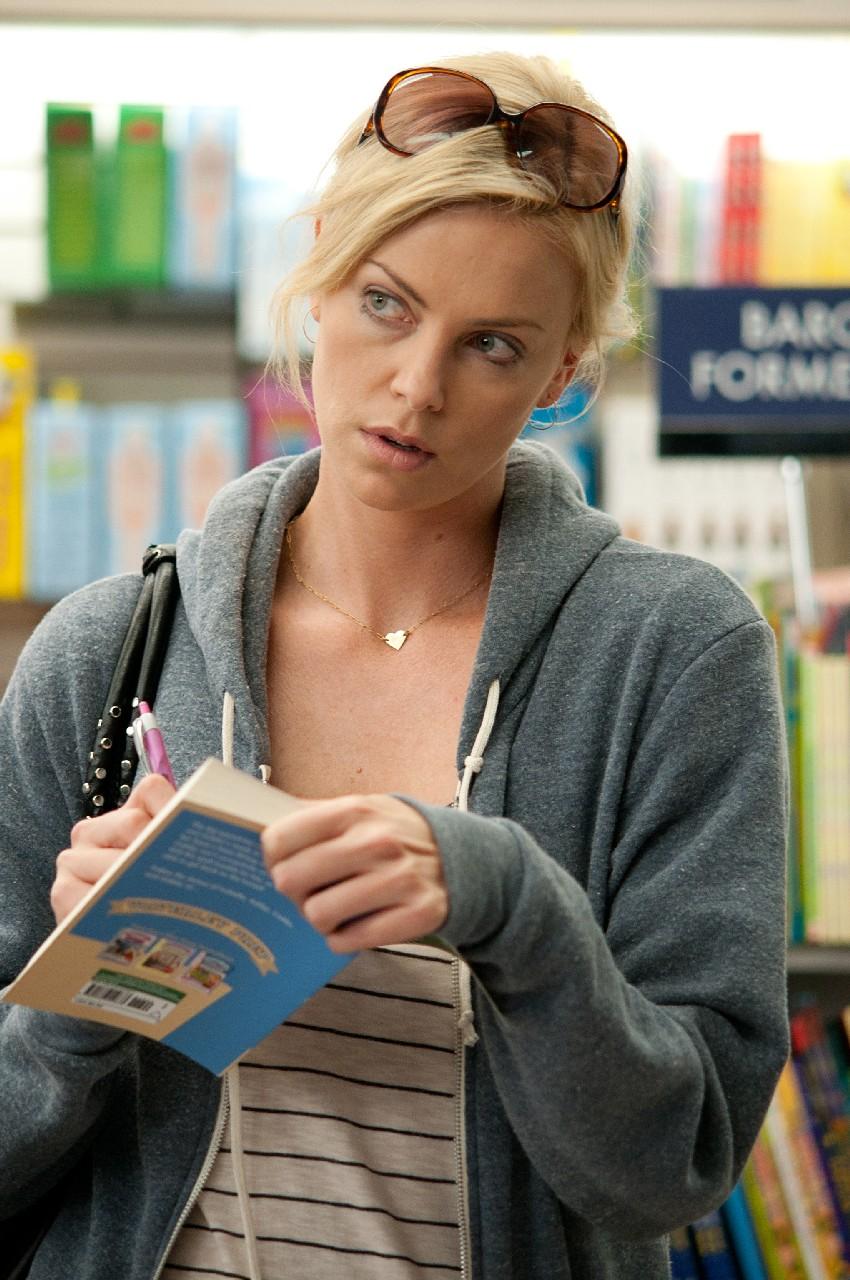 Diablo Cody hasn’t had the easiest time since winning an Oscar for Juno. After her script, a snappy, colorful portrait of teenage life, took home the Best Original Screenplay back in 2007, Cody became the target of a tremendous amount of backlash from people I will personally refer to as “jerkfaces.” WIth Juno and her follow-up Jennifer’s Body, Cody defined a unique voice in two teen-centric movies and, for whatever reason, that wasn’t easily digested by the temperamental Internet community.
Diablo Cody hasn’t had the easiest time since winning an Oscar for Juno. After her script, a snappy, colorful portrait of teenage life, took home the Best Original Screenplay back in 2007, Cody became the target of a tremendous amount of backlash from people I will personally refer to as “jerkfaces.” WIth Juno and her follow-up Jennifer’s Body, Cody defined a unique voice in two teen-centric movies and, for whatever reason, that wasn’t easily digested by the temperamental Internet community.
Now Cody’s back with her third feature, Young Adult , which also marks her second collaboration with director Jason Reitman. For her biggest critics, the movie should be a sufficient wake up call, a display of calmer diction, but with all the dark humor of her past work. I had a chance to talk to Cody in anticipation of her hilarious and often disturbing new film, about writing an unpleasant female character, working with Reitman and Charlize Theron and using negative reactions to fuel her creativity:
Young Adult has your brand of humor all over it, but still feels wildly different than Juno. You’re certainly not repeating yourself. Where did the process on this one begin?
Diablo Cody: It was a couple of years ago that I wrote this. And it was a spec in the purest sense of the word, where I didn’t really tell anybody about it. Certainly I wasn’t hired to do it. It was just totally like an independent creative venture. And I, honestly, I thought it was going to be one of those scripts that winds up in a drawer…like I wouldn’t show it to anybody. I thought it would never see the light of day, because it’s a hard sell to write a movie about an unsympathetic woman with a drinking problem who is trying to break up her ex-boyfriend’s marriage.
So how did you go about selling it? How did you get this movie made?
DC: Well, I wrote the whole thing, and I showed it to Jason Reitman. I always just solicit his opinion as a friend. Like, when I write something, I usually have him read it and ask for feedback. Because I’m annoying like that.
‘Read this!’
DC: I respect his opinion, and he does the same to me. I read his stuff as well. But I have to admit, deep down inside, I thought—I hoped—he’d think about direct this, because I wanted to work with him again so badly. And he read it, and he said, ‘I like it. I have some suggestions.’
So it won him over?
DC: No! Totally not! That would have been nice. I went and worked on it quite a bit more. I think I wrote a few more drafts. And then, Mavis really kind of started to come into focus more. I began to really figure out who she was.
Was there something in particular that put the idea for this character in your head?
DC: It all started, actually, in a situation much like this one, where I was doing press for Juno, and then Jennifer’s Body, and I was constantly being asked why I write about teenagers. And I never knew how to answer the question. Then I started to think about it, and I was like, ‘What if I’m actually just living vicariously through these young characters, because I can’t mature? What if I’m just stunted?’
Oh dear. The press drove you to this movie.
DC: Yeah! The press drove me to it!
I guess that means we’re good for something? Kinda?
DC: [Laughs] Exactly. Yeah. But I was inspired. I thought, ‘What if I really am just a messed up woman-child?’ And then, of course, I eased up on myself. I thought, ‘What if there was a character that was a young adult novelist who truly was immature to a really extreme degree and just desperate to relive her glory days? And goes to extreme lengths to make that happen?’ And I thought, ‘I like this character. I haven’t seen this character before. Let’s go with this.’
 What sensibilities do you think you and Jason share that would draw him into the fascinations similar to your own?
What sensibilities do you think you and Jason share that would draw him into the fascinations similar to your own?
DC: Jason has a great answer to questions like this. He always says that the one thing that all of his films have in common, from Up in the Air to Thank You for Smoking, or this, is that they are…specifically, I think he says that they’re movies that, on paper, don’t seem accessible. They’re not about accessible topics. Like, a pregnant teenager, or a smoking lobbiest, or Mavis. You wouldn’t read a logline or a description of those scripts and be like, ‘Oh yeah, I think that’s going to be a hit.’ And then he finds a way to make those things accessible, and to make them appealing. And he’s really good at it.
But I feel like that’s something you do too.
DC: I have no idea. That’s Jason. That is a question of tone, and that is something that a director must establish. And I think we also are both drawn to dramedy. For some reason, we both enjoy doing serious stories that are couched in humor.
Does that stem from an interest in realism?
DC: That’s right. That’s the thing. Life is funny, and it’s depressing. At the same time. That’s probably true. Although I do want to eventually write a straight broad comedy. And I would also like to write a drama—which I thought this was going to be when I first sat down to write it. I was like, ‘This is going to be dramatic,’ because I was feeling really sensitive about some of the criticism I had faced. I was like, ‘Everybody thinks I’m this annoying, obnoxious, quirky Juno chick. And I’m not! So I’m going to write something really serious!’ And as the script came along, the humor started to creep in. And I was like, I can’t fight it.
It makes sense that you’d strive for diversity to avoid being shoehorned by the public eye.
DC: Yeah! And I felt like that had happened to me so early in my career. I was like, ‘I’ve only done one thing!’ And I did another thing right after it! I almost think of them as the two-headed monster. Those two movies. I am actually able to do other things. I’m not just this writer.
Does it put a strain on you? I mean, it must be really difficult, creatively speaking.
DC: It did. I feel relieved now.
Do you?
DC: Yes.
Does this movie cathartic?
DC: Yeah. And the reaction to it, actually…the relief came in the execution. Come what may, no matter how this movie does, I feel better. Because I’m proud of it, and I feel like I did what I set out to do.
 Awesome. Did you find it difficult to have to write someone who is unsympathetic? Or, is Mavis unsympathetic? I wonder if you have sympathy for her.
Awesome. Did you find it difficult to have to write someone who is unsympathetic? Or, is Mavis unsympathetic? I wonder if you have sympathy for her.
DC: I kind of like her, and so does Charlize. But I know that not everybody feels that way.
Well, it seems important to feel that way, a little, if you’re going to be crafting her.
DC: Yeah. I do have some affection for her. I like her the same way [Patton Oswalt’s character] Matt likes her. The character. Like, I appreciate that she speaks her mind…she’s entertaining. At the same time, she absolutely wasn’t hard to write, but like I said, I was worried that she would never find a home. In terms of distribution. It’s tough. Unsympathetic characters are hard to sell—particularly if it’s a woman.
There’s an obvious double standard. A man can play a bad person and find praise. ‘You’re a great villain!’ But when a woman does it, it’s like, ‘No one in Hollywood will ever like her!’ Why is that? Why can’t we accept an awful woman?
DC: I think people project things on women. I don’t know. I got all Freudian about it earlier.
Oh, do tell.
DC: People have mommy issues, and they don’t like to see a woman angry or upset. Because it’s like, you feel like your very existence is threatened when the person who is supposed to be taking care of you is falling apart. Dark reading of it. So, it’s hard for people to watch a movie with somebody like Mavis, because it’s like…would you want Mavis to be your mother? But then, I don’t feel that people have daddy issues with male characters.
When Charlize came on board, did the script change at all?
DC: I wouldn’t say the script changed. I would say that the performance defined and created the character in so many ways. Charlize deserves co-creator credit for Mavis. She came in an invented body language. She collaborated with Jason on the costume. She got it. And I sometimes think she got it even more than I did. Even though I didn’t do a rewrite specifically for her, in a way, she polished the script with her performance. It was just really cool to behold.
You mentioned not wanting to be defined by one or two scripts, and strive to tackle a large spectrum of movie genres. I know you’re working on your directorial debut Lamb of God—is there something you’re hoping to achieve with this project?
DC: I want to get through it.
You felt like this movie was going to be your serious drama, and it turned out to be Young Adult. What is this next movie for you?
DC: This is, actually, a really uplifting and warm story. Especially compared to Young Adult. It takes place at Christmas, it has a humanist message and it’s about this character who is, I think, very lovable. But at the same time, it’s not like Juno either. It’s something new. And we’ll see if it works.
=”font-style:>



